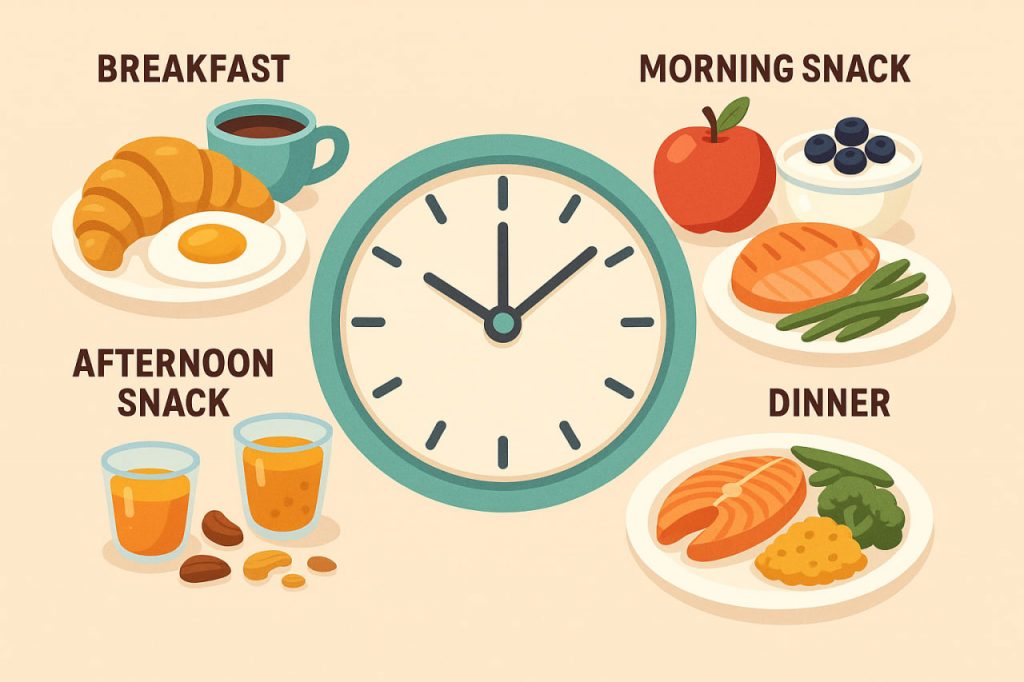The way we distribute meals throughout the day affects not only energy levels but also digestion, metabolism, and overall health. Eating at the right times helps maintain stable blood sugar, prevents overeating, and supports both physical and mental performance. While specific schedules may vary depending on culture, lifestyle, and health conditions, certain general principles can guide an optimal daily meal routine.
Why Meal Timing Matters
The human body follows a circadian rhythm—a natural biological clock that regulates hormone release, digestion, and energy use. Eating in sync with this rhythm helps the body use nutrients efficiently. Skipping meals or eating too late at night can disrupt digestion, metabolism, and sleep.
Recommended Meal Distribution
- Breakfast (7:00–9:00 AM) – After a night of fasting, breakfast should provide a balance of complex carbohydrates, proteins, and healthy fats. This meal “starts the metabolism” and improves concentration during the day.
- Morning Snack (10:00–11:00 AM) – A light snack such as fruit, nuts, or yogurt helps maintain energy until lunch and prevents overeating later.
- Lunch (12:30–2:00 PM) – The largest meal of the day, ideally including vegetables, protein (fish, poultry, legumes), and complex carbohydrates (rice, whole grains). At this time, digestion works most efficiently.
- Afternoon Snack (4:00–5:00 PM) – A small, balanced snack like a smoothie, seeds, or whole-grain crackers keeps blood sugar steady and prepares the body for evening activities.
- Dinner (6:30–8:00 PM) – Should be lighter than lunch but still nutritious, focusing on proteins, vegetables, and fewer carbs. Eating too late or too heavily can interfere with sleep and digestion.
General Tips
- Try to eat every 3–4 hours to avoid long gaps that cause fatigue and cravings.
- Avoid heavy meals close to bedtime to prevent sleep problems.
- Drink water throughout the day; hydration is as important as food timing.
- Adapt timing to your daily activity—athletes, for example, may need extra meals around workouts.
Conclusion
Distributing meals evenly throughout the day supports stable energy, efficient metabolism, and good digestion. An ideal schedule includes three main meals and one or two light snacks. While exact timing may vary, the key is regularity, balance, and avoiding overeating at night. Listening to your body and adjusting meals to your lifestyle helps maintain both health and well-being.
Glossary
- Circadian rhythm – the body’s internal biological clock regulating daily functions.
- Metabolism – the set of processes that convert food into energy.
- Complex carbohydrates – nutrient-rich carbs found in whole grains, vegetables, and legumes that digest slowly.
- Blood sugar – the level of glucose in the blood, providing energy for cells.
- Hydration – maintaining proper fluid balance in the body.


